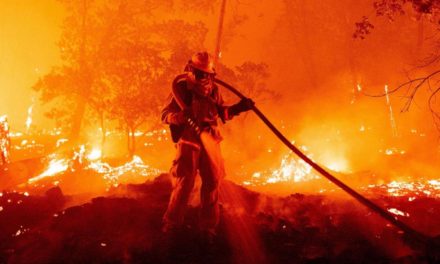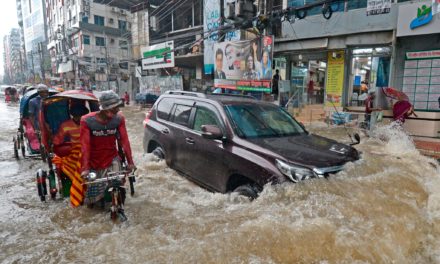When the school year in Italy starts next September, students in all grades will learn about climate change in civics classes. The subject will also be woven into other parts of the curriculum in classes such as math and physics. The country is the first to make climate change a mandatory part of the education system.
“I want to make the Italian education system the first education system that puts the environment and society at the core of everything we learn in school,” said Lorenzo Fioramonti, Italy’s education minister to Reuters.
“The entire ministry is being changed to make sustainability and climate the centre of the education model,” he said.
The government is working with experts like Jeffrey Sachs, the director of the Harvard Institute for International Development to provide feedback to staff working towards developing the new climate curriculum. Teachers’ training will begin in January.
Educators will take different age-appropriate approaches to teach students about the threats of climate change. The lessons might come in the form of fairy-tale-like stories that illustrate the role of the environment for the younger elementary school students, while older students will study areas like the United Nation’s 2030 Sustainable Development Goals.
The lessons will take up to 33 hours a year, nearly an hour a week of courses that incorporate climate change, sustainability, and environmental footprints. The government sees the changes as critical. “The 21-century citizen must be a sustainable citizen,” Fioramonti told the New York Times.
Fioramonti, who belongs to the anti-establishment Five Star Movement, has a history of environmental concern and grassroots activism. He has been criticized during his time in office for supporting students who protest about climate change. He has also received backlash for proposed taxes on airline tickets, plastic, and sugary foods in order to fund education. However, the plastic and sugar tax have both been incorporated into the government’s 2020 budget, a sign that Italy is ready for progressive environmental change.
Fioramonti has been working to educate the public on the issue after the popular right-wing prime minister Matteo Salvini, who is skeptical of climate change, left office in September.
Education a means to fight climate change
Education plays a crucial part in the global response to climate change, according to UN agency UNESCO. When young people learn about the impact of climate change, they are equipped to address the issue, change their attitudes and behaviour and adapt to the climate-affected world.
“They [young people] are yearning to understand how the knowledge can be applied to foster sustainable development,” Fioramonti told HuffPost. “And they yearn for scientific education that can give meaning to their lives.”
Part of a larger movement of recognition: “Climate Strike” 2019 word of the year
The decision comes as youth around the world have been mobilizing and protesting lawmakers’ inaction on the climate crisis.
The student-led climate strikes pushed the term to be named Collin’s word of the year last week.
It’s defined as “a form of protest in which people absent themselves from education or work in order to join demonstrations demanding action to counter climate change”.
This is the second year in a row that an environmental term has been picked as word of the year, after “single-use” in 2018.
Parents and teachers are also on board
A 2019 study by NRP done in the United States shows that most parents support teaching students thoroughly about climate change, including its effects on our environment, economy and society. Among parents with children under 18, 84 per cent agree that it should be taught in schools.
However, parents aren’t necessarily having these conversations themselves. Only 45 per cent of the nationally representative survey of 1,007 Americans said they ever discussed the topic with their own children.
NPR
also completed a survey of 500 teachers and found that though educators were
even more likely than the general public to believe in climate change and to
support teaching climate change, more than 55 per cent of teachers said they do
not cover climate change in their own classrooms or even talk to their students
about it because nearly two-thirds (65%) said it was outside their subject
area.
Read more: A study by 11,000 of the world’s leading scientists
declared that the world is facing a “climate emergency.”
- Travellers are Rethinking Flying as Flight Shaming Takes Off - 1st March 2021
- Oxford-Backed Project Connects Partition Survivors to Their Ancestral Homes - 22nd February 2021
- Helping Your Own: A Young Aslyum Seeker Explains the Importance of Volunteering in the COVID Era - 7th September 2020






